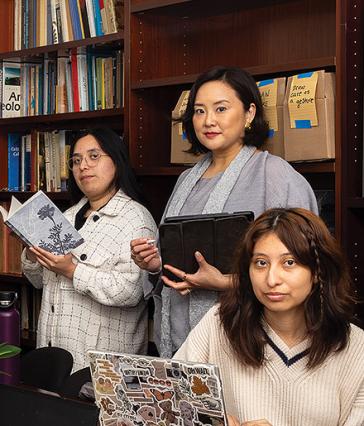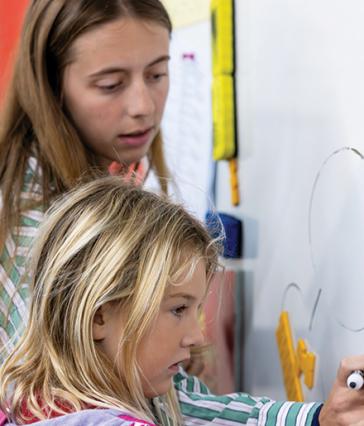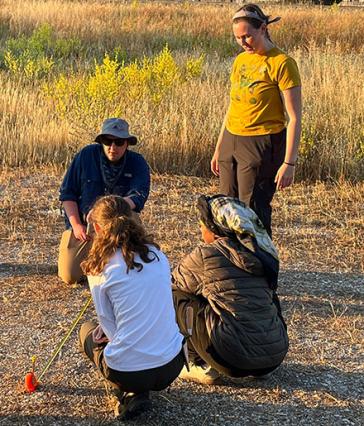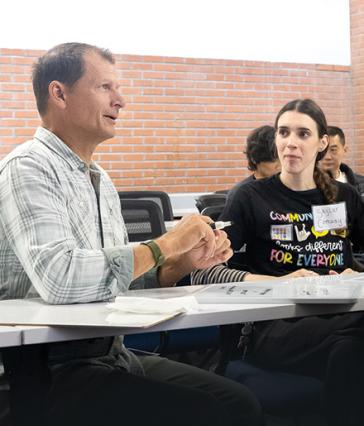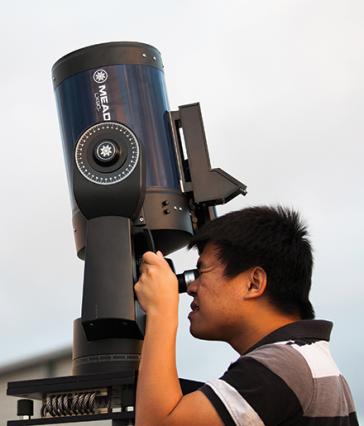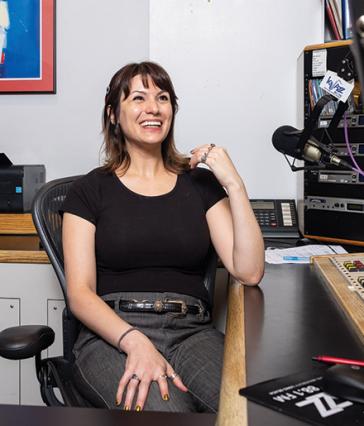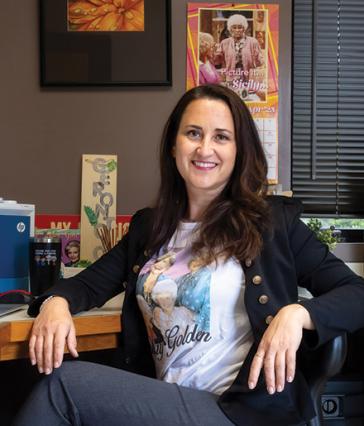New CSULB project empowers students to engage in peaceful discourse
In these uncertain times, with political division rife in the aftermath of the 2024 presidential election, here’s what is certain: Students need and want to find ways to communicate and acquire the tools to have tough, yet peaceful and meaningful conversations.
The Beach Pluralism Project, launched at the beginning of fall 2024 semester and based at the College of Liberal Arts, aims to promote respectful and constructive engagement with those who are different, or hold varying viewpoints. The Pluralism Project “supports peaceful coexistence with others, regardless of faith, race, ethnicity, disability, sexuality, gender identity, documented status or age.”
The goal is to create an inclusive, compassionate and socially equitable society – at CSULB and beyond. Organizers and participants are committed to creating spaces on campus for difficult conversations that lead toward conflict resolution and respectful disagreement.
“For both personal and professional reasons, (The Beach Pluralism Project) is a great thing, and I hope it will have an effect on the community,” President Jane Close Conoley said to participants at the launch of the project. “I hope it would be a regular part of what we offer our students, so that they can hear from experts, and we’ll have, in addition to our unbelievable faculty, we’ll have national experts who will be providing input as well to you, but also to faculty and other staff and students.”
The project is backed with funds allocated by the president and supported by Provost Karyn Scissum Gunn as well as CLA Dean Deborah Thien. Religious studies professors Sophia Pandya and Kathryn Chew are the directors.
This academic year, the project is sponsoring 18 Conoley Fellows, who are taking a course on pluralism through the 2024-25 school year and will participate in pluralism-related events. Each student gets a stipend of $5,000; the funds came from the No Barriers campaign, which successfully concluded in June.
Plans include organizing a symposium in the spring, a possible film series, visits to various houses of worship, highlighting women’s interfaith activism, dinner conversations with experts and more.
“I think we’ve been able to get more done that we had expected,” Pandya said. “Many of the students have told me that they feel they are learning important skills, and that they are looking forward to implementing those skills next semester when they will take the second pluralism course with Dr. John Becker, which will be a practicum.”
Here’s what a few of the current Conoley Fellows said about what motivated them to get involved and what they hope to learn and achieve through the inaugural Pluralism Project.
Jonah Taylor
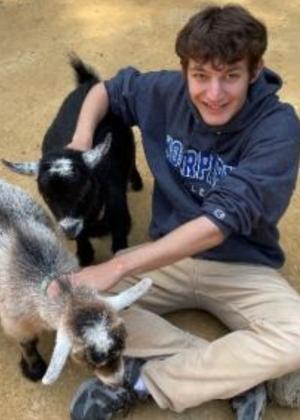
Fourth-year nutrition and dietetics major
“I think it’s really good to grapple with ideas that you struggle with, like the war in Gaza,” said Taylor, who learned about the project through Beach Hillel, which seeks to create a supportive community for Jewish students at CSULB and nearby colleges. “This class has been very good to get to know different students that have other opinions.
“Oftentimes, people don’t want to hear opinions other than their own. I think it’s really a social media issue. The only social media I have is Instagram. I go on Insta, I just see things that are politically divisive. Somebody said this, somebody said that. I’ve observed that people that are on social media perpetuate those ideas.
“It’s important to know that being exposed to other people’s opinions other than your own, even if you disagree with them, or even if they’re hateful – it’s very important.”
Sara Beller
Fourth-year psychology major, minoring in religious studies

“I am starting to get really involved in pluralism in general, as that is a huge part of my Buddhist spirituality. It is something that I thought would be very involved with the religious studies department as well.
“Being a psychology major, it is an incredibly important thing in general to express compassion to people. So that’s what I hope to accomplish.
“I probably would say, (my goal is) just trying to be open and listen to people, listen to what they have to say, and have a healthy argument in a way that’s not a negative thing. And if I have to take it into my workplace, or if I have to take it into other settings outside of school – how to be productive and proactive in conversation.”
Jasmine Forbes
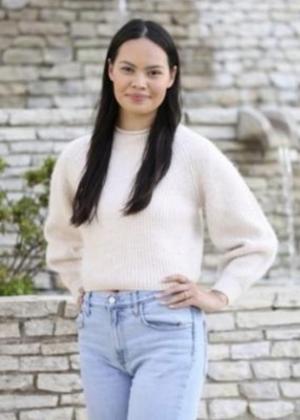
Third-year economics major
“I think in this classroom per se, (having a strong opinion) is one of the things where it’s not an issue, and it’s really refreshing, because absolutely in the outside world, not a lot of people can agree on even just simple things, so that’s why it’s really refreshing in this class.
“This doesn’t even feel like a classroom. It feels like I’m being motivated to just be a better person, and I walk out every day feeling like a better person.
“Like the president said, it starts with a seed. Part of the application and the essay questions was: How do you think that you can advocate for the message of pluralism?
“The angle would be for every single person in this classroom to spread the message.”
Jessica King
Fourth-year double major in creative writing and comparative world literature
Double minor in health humanities and human development
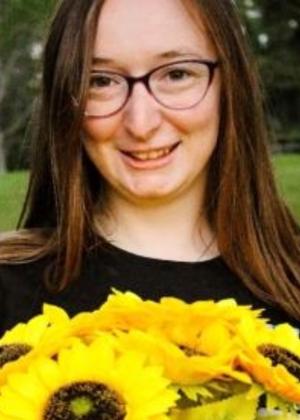
“I do think that pluralism is essential in environments where there is discourse and diversity, because we all have unique backgrounds, some positive and some negative, and it’s really important that we don’t use these backgrounds out of disdain or hatred, but to create a community of co-existence and acceptance.”
King said she is late-diagnosed AuDHD, or autism plus attention-deficit/hyperactivity disorder (ADHD).
“There is a reluctance for (embracing) disabled difference, because it means (people) must be 1) open-minded and 2) understand that our needs differ, depending on the circumstances that we’re in. Ultimately, we’re also people, and we need accommodations to contribute to these conversations.
“On a university level, we’ve made a lot of improvements toward including accessibility in conversations, such as the implementation of ‘accessibility’ in DEIA. But it’s also important that on the personal level, on the social level, we continue integrating these conversations in counseling appointments, in office hours, and in classrooms. It is important that we don’t just say it as a mission statement, but we implement it into our everyday activities to ensure not only student success, but also faculty and staff success.”
Shawn Austria
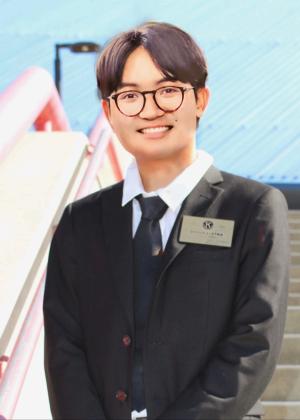
Fourth-year molecular cell biology and physiology major, minoring in chemistry
“I feel like pluralism can be very beneficial to the health care system, because … I don’t like the idea that there’s only one way we should treat patients. I feel like everyone’s their own individual person from diverse backgrounds, and that we have to be aware of where people come from in order to properly treat people.
“So at least in the field I want to go to, I feel like this would be a very good opportunity for me to be able to develop those skills to be able to implement that.
“With the media and everything, people are so polarized and are so quick to judge and call out the other side. It’s a really big problem in our society, and I feel like I always saw a problem with it, and this program is just affirming my belief. We shouldn’t cancel somebody, or stop talking to somebody, just because they have a different view than we have.”










